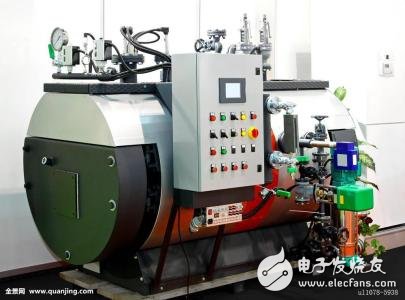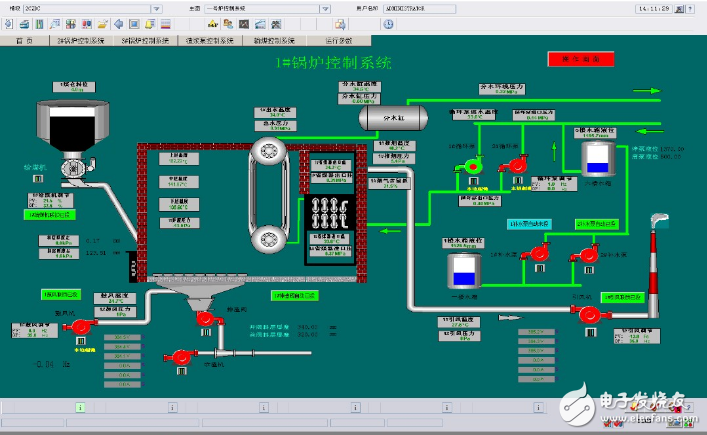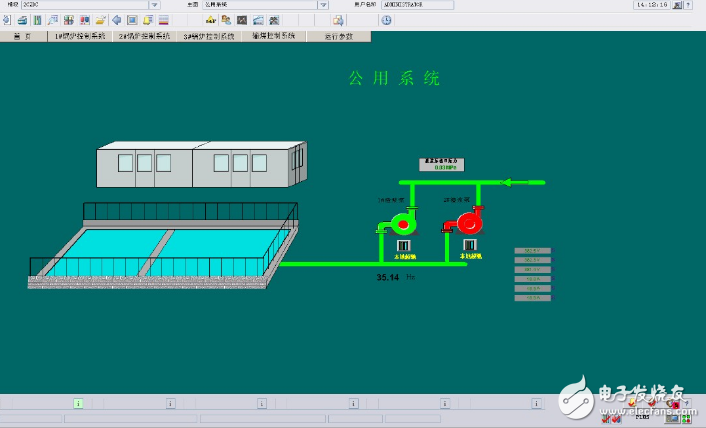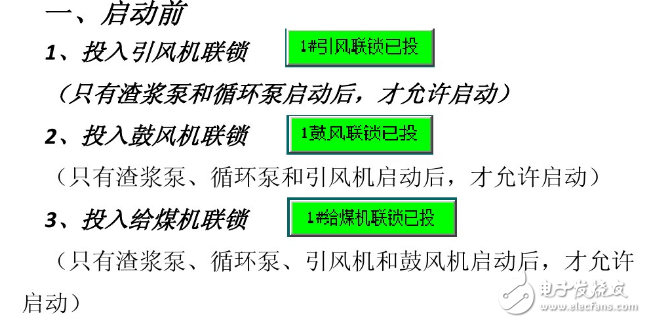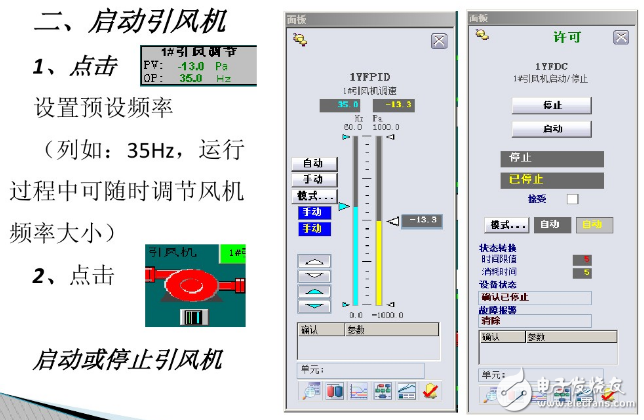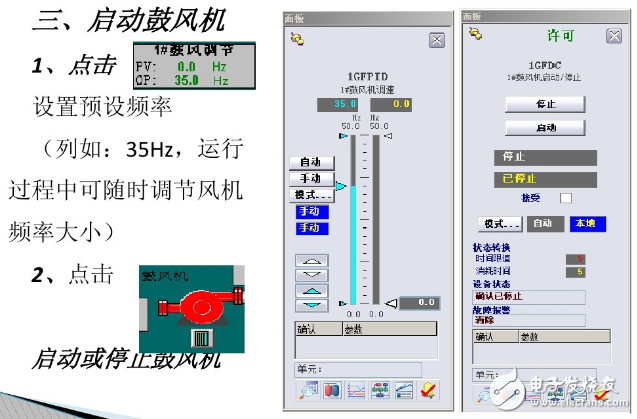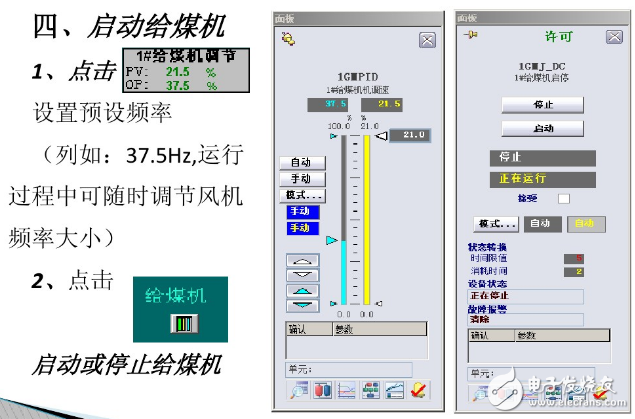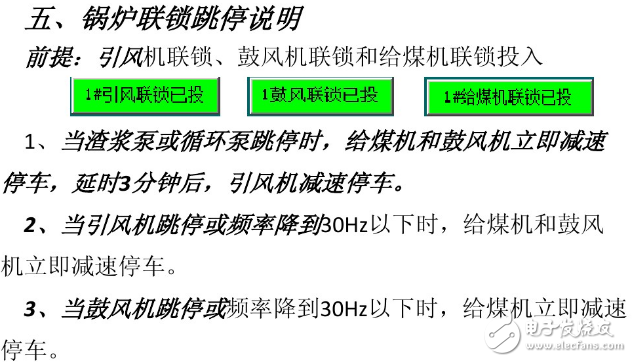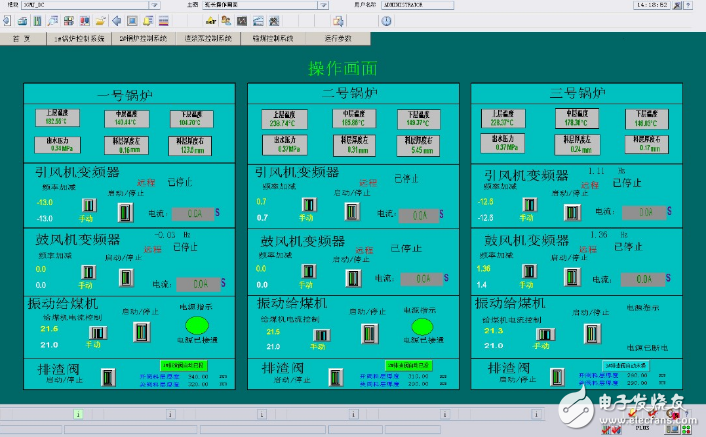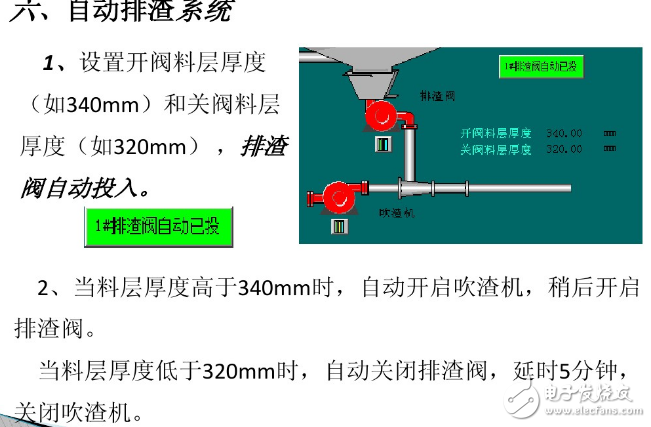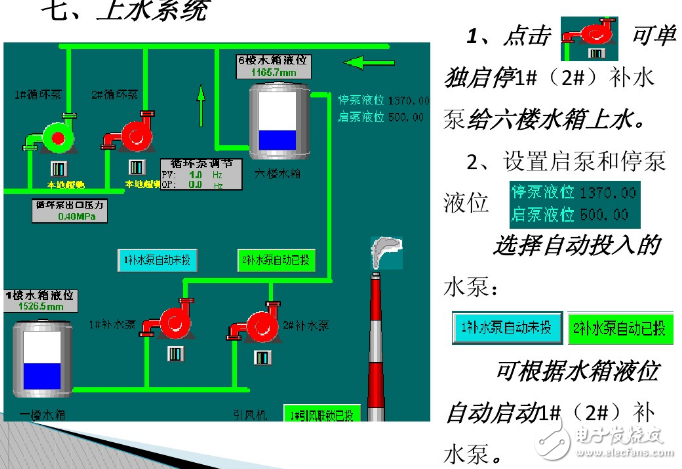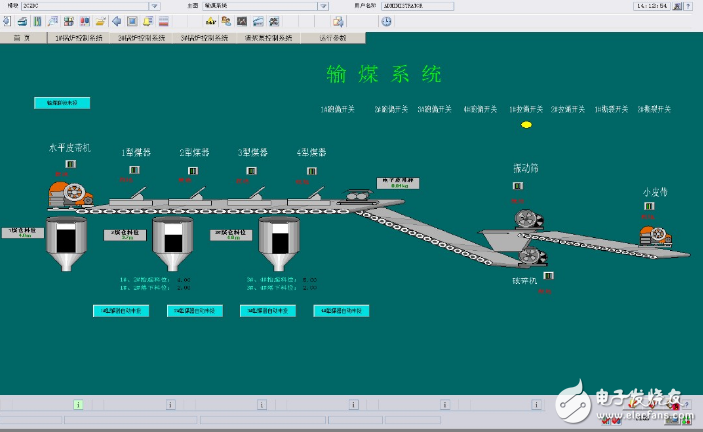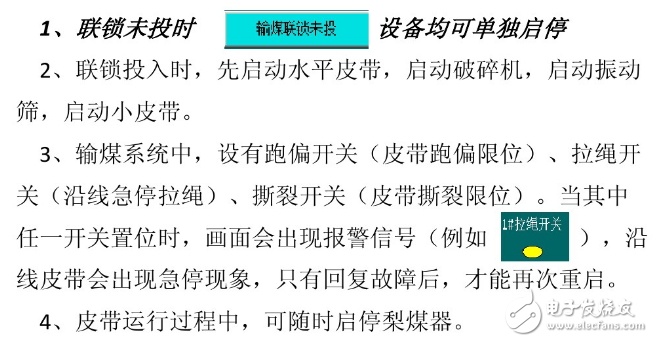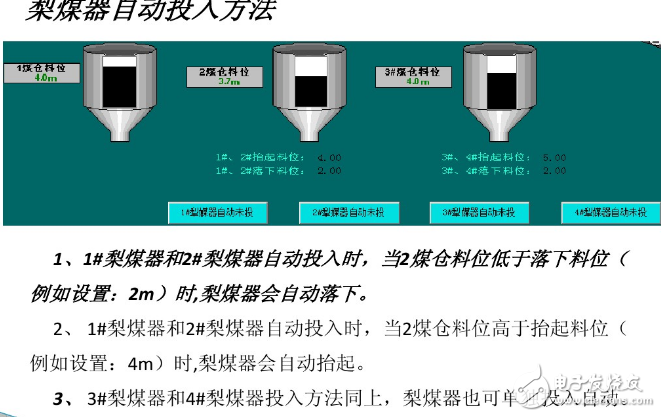**Overview of Boiler DCS Control System**
The Distributed Control System (DCS) is a modern control technology that uses advanced computer systems to monitor, manage, and control industrial processes in a decentralized manner. It combines various technologies such as computer science, signal processing, measurement, communication networks, CRT display, and human-machine interface to provide an efficient and reliable control solution. Unlike traditional distributed instruments or centralized control systems, the DCS integrates the best features of both while overcoming their limitations. This system offers high versatility, flexible configuration, strong control capabilities, easy data handling, centralized operation, user-friendly interfaces, and safe and stable performance. It helps improve automation levels, reduce energy and material consumption, increase productivity, ensure safety, and achieve optimal economic and social benefits.
**Functions of the Boiler DCS Control System**
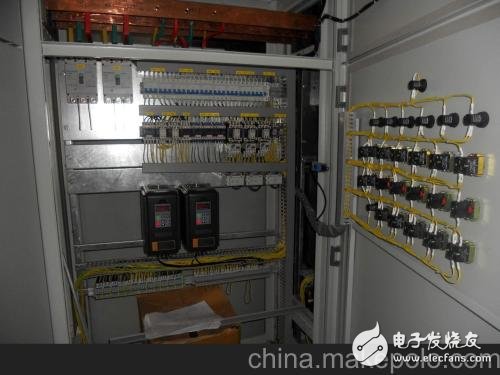
1. **Data Acquisition and Real-Time Display**
The system collects both analog and digital signals from the boiler, including parameters like outlet water temperature, pressure, flow, furnace temperature, negative pressure, exhaust temperature, outdoor temperature, return water temperature, and more. Switching signals include interlocks, manual/auto switches, alarm resets, motor status, and others. These signals are processed and displayed on the screen in real time, with additional features for querying, statistics, reports, and printing.
2. **Automatic and Manual Control of the Heating System**
In manual mode, the system focuses on data acquisition and display, allowing operators to control equipment directly during debugging. In automatic mode, it optimizes boiler operations based on feedback signals, reducing fuel, power, and water usage. Manual control has higher priority, and switching between modes is smooth. Logic control ensures interlocking and closed-loop functions for auxiliary equipment. Operator stations allow remote control, emergency handling, and overall coordination.
3. **Communication Function**
The control room communicates with remote computers via telephone lines using a MODEM. It supports standard external communication interfaces and connects field controllers through a network. Data is updated every second, ensuring real-time monitoring and seamless interaction across all control stations.
**Composition of the Boiler DCS Control System**
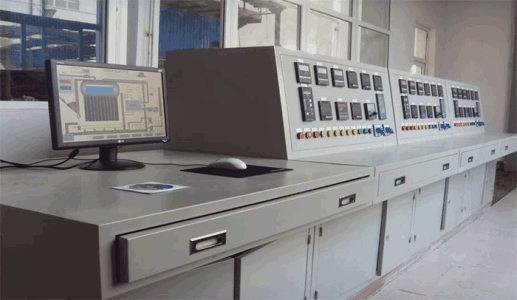
1. **Hardware System**
The system includes field control stations and operator stations. Each boiler is monitored by its own station, with shared stations for common parts. Sensors collect and transmit process data, while frequency converters control fans and motors. The instrument panel provides direct visual feedback, and alarms are managed through both the computer and physical indicators.
2. **Software System**
The software includes tailored industrial control packages, supporting high-level language programming and real-time data visualization. It runs on a Windows-based platform with multi-tasking, file management, text editing, and network communication features. Online diagnostics and Chinese support enhance usability and reliability.
**Operating Instructions for the Boiler DCS Control System**
**Summary of DCS Commissioning for the Boiler System**
The DCS was successfully implemented to control three boilers (two 40-ton and one 20-ton). After two heating seasons, the system proved effective. Key lessons learned include:
1. Strong anti-interference measures were essential. Proper grounding, shielded cables, isolation modules, and software design helped prevent signal disruption.
2. All components must come from reliable suppliers with local support to ensure quick problem resolution.
3. Separate power switches for instruments and lower-level devices allowed maintenance without affecting other equipment.
4. Sealing cabinets with IP54 protection kept dust out, improving system reliability and ease of future expansion.
This comprehensive setup not only enhanced operational efficiency but also ensured long-term stability and safety in boiler management.
48V Lifepo4 Battery
The 48V Lifepo4 Battery, or 48V lithium iron phosphate battery, is a type of lithium-ion battery that uses lithium iron phosphate (LiFePO4) as a positive electrode material and has a nominal voltage of 48V. This kind of battery has a wide range of applications in many fields because of its unique performance and advantages. The following is a detailed description of its class purpose:
First, basic attributes
Voltage: 48V, suitable for applications that require a high voltage source.
Technology type: Lithium iron phosphate battery, with high safety, long life, high energy density and good environmental adaptability.
Second, application scenarios
Electric vehicles: 48V lithium iron phosphate batteries are widely used in electric bicycles, electric motorcycles, electric tricycles and some electric vehicles to provide lasting power support for them.
Energy storage system: In renewable energy systems such as solar energy storage and wind energy storage, 48V lithium iron phosphate batteries are used as important energy storage components to convert renewable energy into electricity and store it for subsequent use.
Industrial equipment: In industrial automation, robots, power tools and other fields, 48V lithium iron phosphate batteries also play an important role, providing stable and reliable power support for various industrial equipment.
UPS power supply: For data centers, communication base stations and other places that require high-reliability power supply, 48V lithium iron phosphate batteries are used as backup power supplies for the UPS system to ensure that the power supply can continue when the mains power is lost.
Third, performance characteristics
High safety: Lithium iron phosphate material has good thermal stability and chemical stability, so that lithium iron phosphate battery in overcharge, overdischarge, short circuit and other extreme conditions can still maintain a high safety.
Long life: The cycle life of lithium iron phosphate batteries is long, which can meet the needs of long-term use, and reduce the frequency and cost of replacing batteries.
High energy density: Compared to other types of batteries, lithium iron phosphate batteries have a high energy density and are able to store more electrical energy in the same volume or weight.
Good environmental adaptability: lithium iron phosphate batteries can work in a wide temperature range, and no pollution to the environment, in line with environmental protection requirements.
4. Technical parameters (Take a specific product as an example)
Please note that the following technical parameters may vary from product to product:
Nominal voltage: 48V (the actual voltage may vary depending on the charging and discharging state)
Nominal capacity: According to the specific product, such as 10Ah, 50Ah, 100Ah, etc
Charging voltage: Generally around 54.6V (specific value may vary by product)
Discharge cut-off voltage: Generally about 42V (the specific value may vary by product)
Charge current: Different sizes of charge current are supported, depending on the design of the charger and the state of the battery
Discharge current: Also supports different sizes of discharge current to meet the needs of different application scenarios
Operating temperature range: a wide operating temperature range, usually including charging temperature, discharge temperature and storage temperature three intervals
48V Lithium battery,48V Lifepo4 battery, 48V solar energy system, 48V battery energy system
Foshan Keylewatt Technology Co., LTD , https://www.klwenergy.com
